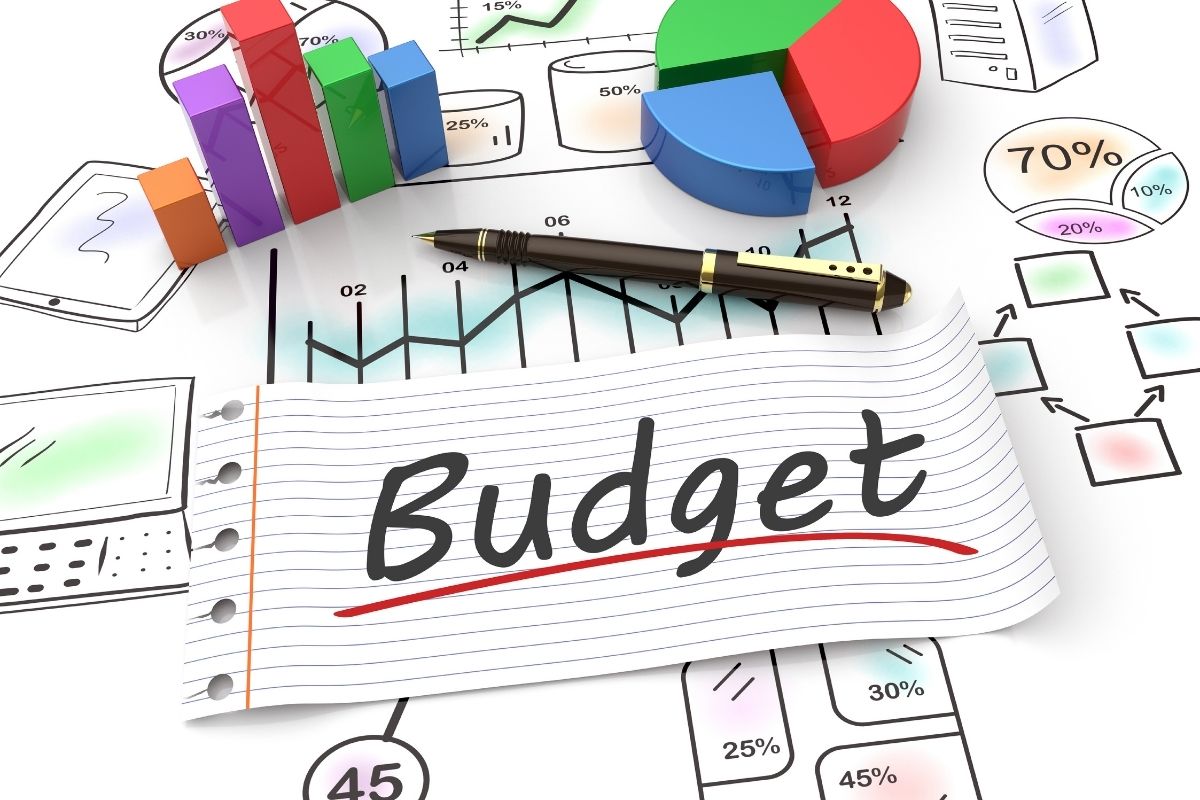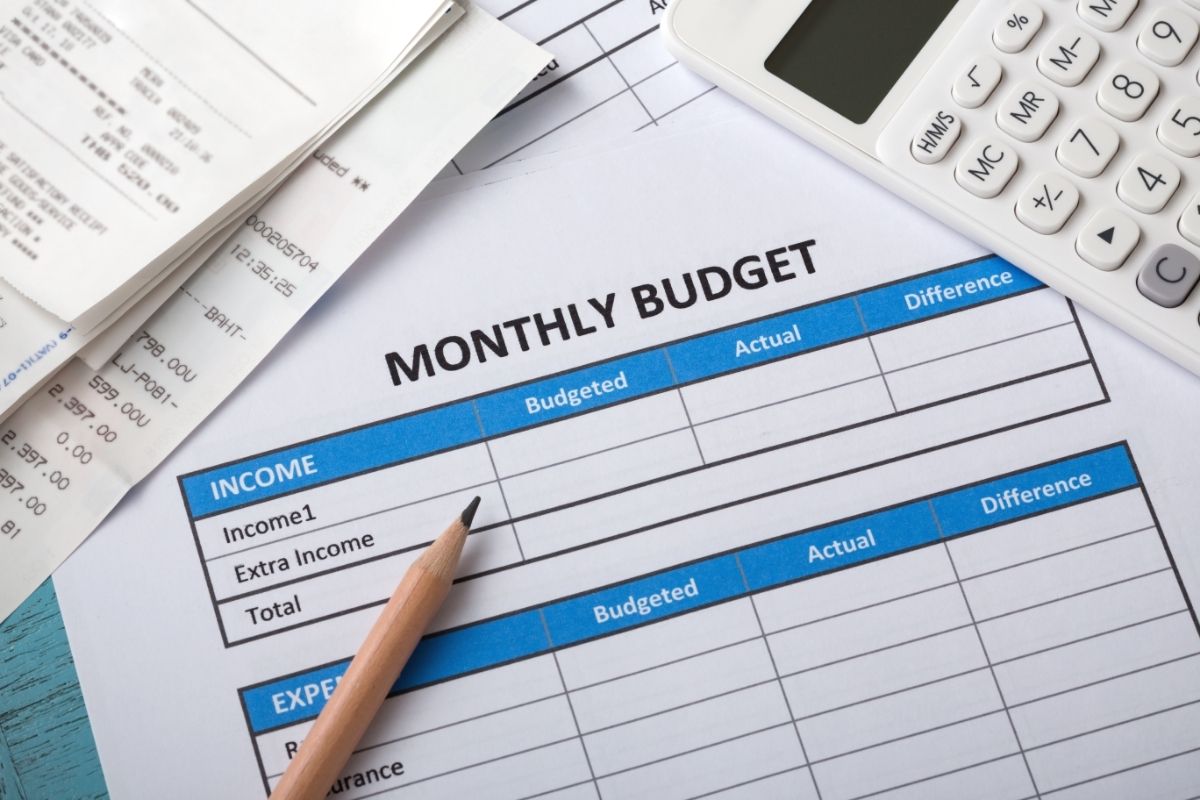Have you ever wondered how much money you should budget every year? The answer isn’t simple.
There are several ways to calculate your spending habits, but they don’t always give accurate answers.

Budgeting is a great way to plan your finances. If you want to save money, you need to know where your money goes. This helps you identify areas where you can cut back or spend less.
Whether you earn $40 000 a year, or $140 000, it’s always a good idea to try to keep your costs low if you are trying to save money for the future.
Say you have just gotten a big pay rise, do you need to immediately start spending this extra money?
Or, could you alternatively live within the same means you were previously and save your extra income?
If you save your extra income, you could be well on your way to having a tidy nest egg that can see you through any future financial uncertainty and allow you to save easily for more worthwhile investments or big purchases.
Budgeting For $40000
In this article, we will be discussing how you can budget for a $40 000 salary income. But, if you earn more than this, you should also try to live within this budget.
By keeping your monthly and yearly expenses down, you can use any excess money from your pay check to invest, make a bigger purchase down the line, or save up for your future.
By narrowing down your unnecessary spending, you can make sure that you have a larger amount of disposable income in the long term!
It can be all too easy to fritter away your money when you get a larger salary – those expensive dinners out and higher home costs add up incredibly quickly, and before you know it, you’re back to counting the pennies, no matter how much you earn!
Your Monthly Income
Whatever kind of budgeting approach to take, you first need to work out what your monthly income is.
You may think you make $40 000, but this could be without taking into account income tax, insurance, social security, or any other essentials that affect your cost of living.
First, you want to break down your $40 000 budget into 12 months – that works out to just over $3 300 per month.
From this, take out all of your essential cost of living expenses, these include, but are not limited to:
- Bills
- Income tax
- Social security
- Debt payments
- Insurance
- Transportation costs
- Mortgage or rent payments
Once you have removed all of these non-negotiable monthly costs, your leftover amount is what you can ACTUALLY budget with.
Dividing Your Expendable Income Into A Monthly Budget
But wait, that’s not all you have to pay for in a month, is it? What about groceries to live off?
Well, groceries are one of the areas you can drastically reduce, or easily overspend in, it all depends on how thrifty you want to with your food.
What other things do you want to spend your money on in an average month?
Write down every element of your life that you want to spend money on over your month, and then write down a desired amount you’d like to spend on each of these categories.
We’ll use ‘The Smith Family’ as an example:
After all of their non-negotiable bills, rent, tax, and transport costs, the Smith’s worked out they have $1000 per month to divide as they please.
This would be their ideal spending amount over the month:

- Groceries $500
- Going out/entertaining $200
- Clothes $200
- Kid’s toys/ treats $100
But, that is their entire budget gone.
That’s absolutely fine, but if the Smith’s have any savings goals, if they lived like this every month, they would never be able to save enough money to support themselves if something were to go wrong, such as a job loss, an unexpected medical bill or a home improvement.
So, the Smiths have a rethink and want to save a total of $350 every month.
It’ll be tough, but, by budgeting their money throughout the year, after 12 months they will have saved a total of $4 200!
With that savings goal in mind, they have narrowed their spending budget that still allows them to spend on what they want, but also save money every month.
This is their new monthly spending budget that allows them to save $350 a month:
- Groceries $400
- Going out/ entertaining $100
- Clothes $100
- Kid’s toys/treats $50
Do I Need To Track My Spending Every Month?
No matter which approach to budgeting you choose, you will still need to keep track of your spending.
In order to properly budget, you need to know exactly how much money you make and how much you spend.
Tracking your spending every single month is not necessary.
However, if you want to get more detailed information, then you should probably try to keep track of your expenses on a monthly basis.
It is important to note that there are many ways to track your spending. Some people prefer to write down everything they spend. Others prefer to use a spreadsheet program.
You could do this simply by jotting down in your phone every time you make a purchase, or by going through your bank statements at the end of every week or month.
By constantly referring back to your original budget, you can make sure you are staying within the confines of your monthly amounts, allowing you to save for a rainy day!
Budgeting Tips
Now that you understand the basics of budgeting, here are three tips that you should follow:
- Make sure that you know exactly how much money you make per month.
- Be honest with yourself. Don’t lie to yourself about how much money you have available to spend.
- Keep a running total of your monthly expenses.
These tips will help you to get started on the right foot.
Once you start saving money, you will find that it becomes easier to manage your finances.
And once you learn how to properly budget, you will be able to accomplish more than ever before!
Final Thoughts
As long as you are planning to cover all of your expenses, slowly building an emergency fun and leaving yourself a bit of money to actually enjoy your life, we’d say that’s a pretty successful budget!
Growing your wealth takes time, and if you have long term savings goals you need to think about the short term restrictions to your budget you are willing to make in order to save for the things that really matter to you.
At the end of the day, as long as you are always spending less every month than you are earning, you will build up your wealth and your financial freedom.
Financial Disclaimer
This post contains sponsored advertising content. This content is for informational purposes only and not intended to be investing advice.
The investing information provided on this page is for educational purposes only. compundingstacks.com does not offer advisory or brokerage services, nor does it recommend or advise investors to buy or sell particular stocks or securities.
The owner(s) of this blog is compensated to provide opinion on products, services, websites, and other topics. The owner(s) may be compensated if you click on a provided link and purchase or sign up for a service. Any product claim or advice about a product or service should be verified with the manufacturer, provider, or party in question. Copyright Compounding Stacks © 2022
- Is Coinbase Safe For Beginners? - March 25, 2022
- Are Penny Stocks Good For Beginners? - March 25, 2022
- Why You Shouldn’t Save Your Money In A Bank? - March 25, 2022
